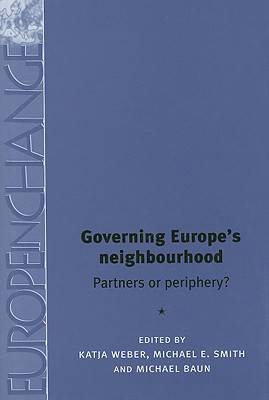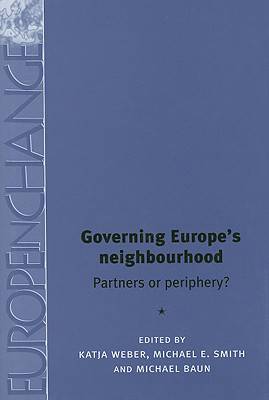
- Afhalen na 1 uur in een winkel met voorraad
- Gratis thuislevering in België vanaf € 30
- Ruim aanbod met 7 miljoen producten
- Afhalen na 1 uur in een winkel met voorraad
- Gratis thuislevering in België vanaf € 30
- Ruim aanbod met 7 miljoen producten
Zoeken
Governing Europe's Neighbourhood
Partners or Periphery?
€ 123,45
+ 246 punten
Omschrijving
This volume examines the role of the European Union in creating a system of governance involving the countries and regions of its new 'neighbourhood'. Enlargement has functioned as one of the EU's most effective foreign policy tools, yet the EU is rapidly approaching the limits of its capacity to accept new member states. It therefore must develop ways of extending and preserving the European zone of peace and stability that do not rely on the prospect of membership as a means of influencing the behaviour of non-member countries. A major step in this direction is the EU's new European Neighbourhood Policy (ENP). The ENP aims to create a ring of 'well-governed and friendly' countries along the EU's eastern, southeastern, and southern peripheries. This volume situates this policy in a broad, analytically-coherent framework, supported by a full range of ENP case studies, to explain whether the ENP represents a truly new approach to regional governance and, if so, what lessons that effort might offer to larger debates about the future of Europe, transatlantic relations and international order.
Specificaties
Betrokkenen
- Uitgeverij:
Inhoud
- Aantal bladzijden:
- 254
- Taal:
- Engels
- Reeks:
Eigenschappen
- Productcode (EAN):
- 9780719076015
- Verschijningsdatum:
- 1/04/2008
- Uitvoering:
- Hardcover
- Formaat:
- Ongenaaid / garenloos gebonden
- Afmetingen:
- 160 mm x 240 mm
- Gewicht:
- 566 g

Alleen bij Standaard Boekhandel
+ 246 punten op je klantenkaart van Standaard Boekhandel
Beoordelingen
We publiceren alleen reviews die voldoen aan de voorwaarden voor reviews. Bekijk onze voorwaarden voor reviews.










